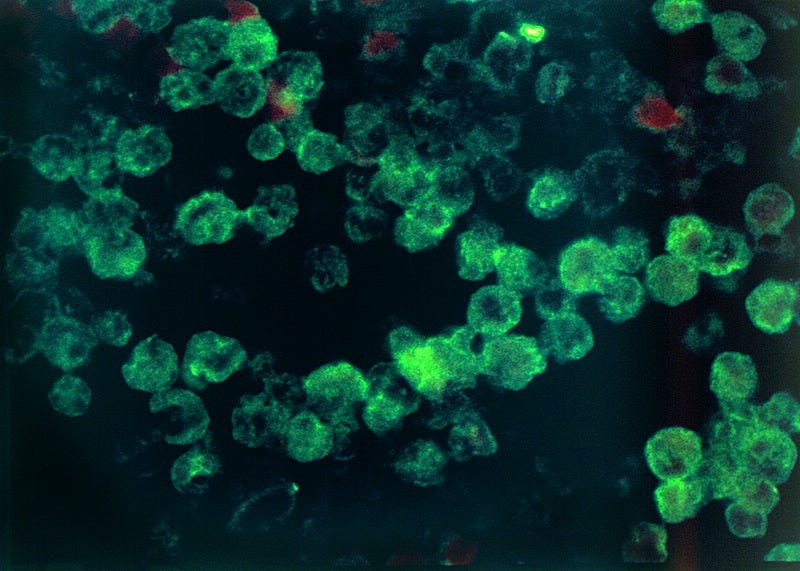- Sebastian Deleon nearly died of a brain-eating amoeba infection in 2016.
- The 22-year-old believes he contracted the bug while cannon-balling into a local pond.
- He made a full recovery after doctors quickly diagnosed him and procured the right medicine.
Six years after a near-death experience with a brain-eating amoeba, college student Sebastian Deleon is sharing his story to raise awareness.
Deleon, now 22, is one of four known survivors of infection with Naegleria fowleri, a rare amoeba found in warm freshwater. He told Click Orlando that he was hospitalized after swimming in a pond near his home in Weston, Florida, when he was 16.
He said he remembers "cannon-balling" into the pond on two or three occasions. In hindsight, he thinks that jumping into the water without covering his nose gave the parasite a chance to enter his nostrils and infect his brain.
The brain-eating amoeba has claimed at least 150 lives in the US, according to the Centers for Disease and Prevention. Nearly all cases are fatal, and Deleon is one of the first survivors to speak publicly about his experience.
The first two years of recovery were the hardest, Deleon told Click Orlando. After losing most of his motor skills due to swelling in his brain, he said he went to a rehabilitation center where he learned how to walk, write, and perform basic tasks again.
He has since made a full recovery, thanks to his doctors' quick diagnosis and the help of a local pharmaceutical company. Now, Deleon is studying criminal justice and speaking out about his experience
"We should probably have more research into this because there's no reason why a kid should go into a pond and be scared that they could get something that we barely know what to do with," Deleon told Click Orlando.
'This headache was different'
The Deleon family was vacationing at a theme park in Orlando when Sebastian came down with a headache so severe that he could not tolerate people touching him, CBS News reported in 2016.
"This headache was different," Deleon later told Click Orlando. "It felt more like — the description that I kept saying at the hospital was that it felt like there was a smooth rock on top of my head, and someone was pushing it down."
Deleon said his parents could tell that it was not a normal headache, since he could hardly move. They decided to take him to the hospital by car the day his symptoms started.
"It felt like I was in one of those roller coasters spinning around and around and around, and I had to wear sunglasses, and the sun wasn't even out," he said.
At the hospital, Dr. Humberto Liriano recognized the symptoms of primary amebic meningoencephalitis (PAM), the infection associated with the Naegleria fowleri amoeba. The infection is most common in Florida and Texas, so the critical care team was familiar with PAM's high fatality rate.
"The family when they came to me, immediately within four hours, I had to tell them to say their goodbyes," Liriano told reporters in 2016.
Deleon survived thanks to a cutting-edge drug
As soon as the team spotted the amoeba on a spinal tap, they reached out to an Orlando pharmaceutical company called Profounda. The company is the sole US distributor of Impavido, a drug that has shown promise in treating PAM.
Only 26 hospitals in the US carry Impavido, CEO Todd McLaughlan told Click Orlando. Seven of them are located in Florida, but the hospital where Deleon was being treated did not have the drug on hand.
Within 12 minutes of getting the request from the hospital pharmacy, McLaughlan's son was on his way to hand-deliver the essential dose, local news station WLRN reported in 2016.
Doctors then put Deleon in a medically-induced coma to slow the infection and give the medication a chance to work. He was in the coma for about 72 hours before the critical care team decided to wake him up.
Deleon was able to breathe on his own and spoke within hours of having his breathing tube removed, Liriano said in a news conference. Having previously treated patients with PAM who did not make it, Liriano was visibly emotional to share a rare story of survival.

